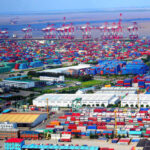By Shalom Karunwi
When the power went out a couple of years ago, Nigerians’ groans of “NEPA” echoed. Nowadays, the typical response—especially for individuals and businesses without renewable energy—is to clarify the assumption that the grid has collapsed. When we discuss Nigeria’s power crisis, we often blame poor infrastructure, gas shortages, or government inefficiency. But there’s a hidden culprit that rarely makes headlines: the clandestine grid.
The primary cause of an electricity theft epidemic, it has an incognito web of actors whose primary goal is to render the primarygrid obsolete. From illegal connections to meter bypassing, the clandestine grid is draining the system and costing billions. And it’s not just a few rogue individuals—it’s an organised, nationwide problem.
According to the Nigerian Electricity Regulatory Commission (NERC), ATC&C (Aggregated technical, commercial and commercial) losses in 2024 – a metric that considers electricity theft- accounted for approximately 40% of the total power generated. That’s almost half of the country’s electricity vanishing into thin air—or into the pockets of those who refuse to pay. In some areas, entire communities are powered by illegal connections, leaving distribution companies with massive revenue shortfalls. From an economic perspective, as reported by the media, Nigeria lost an estimated N1.06 trillion to electricity theft and vandalism in 2022 alone. Debates will persist regarding the clandestine grid given the divisive nature of any social issue; however, a consensus exists among all parties that exploiting such staggering amounts without adequate documentation is completely untenable.
The problem isn’t confined to a few rogue individuals or isolated communities. It is systemic and widespread. In cities like Lagos, Kano, and Port Harcourt, entire neighbourhoods are powered by illegal connections, often with the tacit approval of local authorities. In rural areas, where access to the grid is limited, communities frequently tap into power lines without meters, leaving distribution companies (DisCos) with no way to bill them. The harsh reality that comes from simple street talk with everyday Nigerians is that, given the number of obligations that people face, paying for electricity is not a top priority. They do, however, expect that electricity ought to be supplied and that it will be done so frequently.
A 2021 report by the Association of Nigerian Electricity Distributors (ANED) revealed that some DisCos lose up to 80% of their revenue in certain regions due to electricity theft and non-payment. For example, Kaduna Electric reported that 70% of the power it distributes is either stolen or unpaid for, pushing the company to the brink of bankruptcy.
Operating the clandestine grid has become a sophisticated endeavour in Nigeria. From “magic meters” that underreport usage to outright tampering with distribution lines, Nigerians have developed creative ways to avoid paying for electricity. In some cases, consumers bribe officials to ignore illegal connections, creating a culture of impunity. A 2020 investigation by The Cable Nigeria uncovered instances where entire apartment complexes ran on stolen electricity, with landlords colluding with corrupt officials to bypass meters.
While electricity theft might seem like a victimless crime – especially to those actively and passively participating in the endeavour, its ripple effects are devastating. In an effort to balance their books with the energy obtained from the GenCos, DisCos raise tariffs, which disproportionately affect honest consumers.
Small and medium-sized enterprises (SMEs), which employ more than 84% of Nigeria’s workers and comprise roughly 96% of all enterprises in the nation (NBS, 2020), are already struggling with high operating costs. They are forced to rely on expensive generators, which are further exacerbated by the high cost of fuelling them and ultimately stifling economic growth. A 2020 International Monetary Fund (IMF) report found that these Nigerian businesses spend an estimated $14 billion annually on generators. This report was conducted way before the removal of the fuel subsidy in May 2023, which saw a 400% rise in the price of PMS into 2024. By the end of 2025, that number is predicted to increase to an incomprehensible magnitude.
Worse still, the instability caused by illegal connections often leads to frequent blackouts and even fires, putting lives and property at risk.
Nigeria isn’t alone in grappling with electricity theft, but the scale of the problem here is staggering. According to the World Bank and India’s Central Electricity Authority (CEA), India reduced its electricity losses from 27% in 2014 to 18% in 2022 through aggressive reforms and the adoption of smart meters. In contrast, Nigeria’s losses remain above 40%, as reported by the Nigerian Electricity Regulatory Commission (NERC), highlighting the urgent need for action.
Smart meters, advanced grid monitoring systems, and blockchain-based billing systems that create tamper-proof records of electricity transactions, ensuring that consumers are billed accurately and that payments are tracked transparently are being touted as potential solutions. But can technology outsmart the active players on the clandestine grid in a country where corruption is rampant? Or will Nigeria’s power sector remain a playground for the bold and the lawless?
There is a staple message in military affairs— “never fight a war on two fronts,” which essentially means it is strategically unwise to engage in a conflict against multiple enemies simultaneously. Nigeria cannot afford the continuous operation of the clandestine grid, and a focus needs to be placed on the web of actors involved in this endeavour who must be suppressed with the utmost alacrity.
(Shalom Karunwi is Energy Data Analyst at Nextier)



